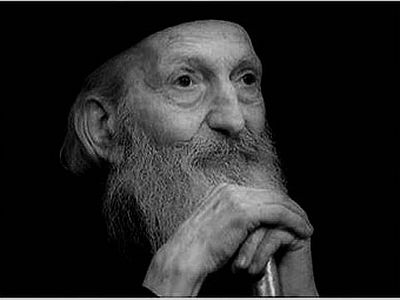Each day when I enter the church, I see these words on an icon:
 John 13:34
John 13:34
Those words have been part of my life, week in and week out for 20 years. I cannot get to my office without passing by them. Some days they seem to jump out at me and cause me to stop in my tracks. Sometimes if I mindlessly walk by them, they call me back and I have to stop in front of them and remember.
Jesus’ only new commandment is that we are to love one another as He loved us. Christ commands me to love others as He loves me. That is a tall order for sure. And every day I struggle with what it means and how I might do it, or even if it is possible for me to do it. Of course, I can find ways to make the text more palatable and doable. Since Jesus speaks to us (in the plural) he means that when we are gathered with other like-minded Christians who are all committed to Christian love, then we are to love them in that context since they will equally be loving us back. But then, of course, Christ taught us to love our enemies (Matthew 5:44), so our Christian love isn’t limited to those who love us. If it is, how are we any different than unbelievers? (Luke 6:27, 35)
“We are commanded to have only one enemy, the devil. With him never be reconciled! But with a brother, never be at enmity in your heart.” – St. John Chrysostom
“Prayer for our enemies is the very highest summit of self-control.” – St. John Chrysostom”
“Praying against one’s personal enemies is a transgression of the law [of the Gospel].” – St. John Chrysostom
Christ’s Gospel commandments are hard. Sometimes they seem obscure, for how can we do them? Is it humanly possible? Perhaps, Christ just was a utopian idealist, and some day, in heaven or paradise or some distant place, a pie-in-the-sky La La land, things would be so very nice and polite.
However, we live in this world, in which there really are enemies, and people we don’t particularly like or want to be around. What are we to say to Christ when He commands us to do something that seems too hard, or maybe even not possible?
“Yes, sir!”
He is our Lord, God and Master, and we are His servants. So before every service I light a candle before this icon which portrays Christ’s commandment, and I have to lay aside all excuses, and say, “Yes, Lord!” Bowing my head in humility, I also have to say, “Forgive me.” Forgive me for doubting it is possible, for not even trying, for not being willing to deny myself in order to follow You, for wanting to sit at your right hand but not being willing to stand with you at the Cross.
“It is a fearful thing to hate whom God has loved. To look upon another – his weaknesses, his sins, his faults, his defects – is to look upon one who is suffering. He is suffering from negative passions, from the same sinful human corruption from which you yourself suffer. This is very important; do not look upon him with the judgmental eyes of comparison, noting the sins you assume you would never commit. Rather, see him as a fellow sufferer, a fellow human being who is in the need of the very healing of which you are in need. Help him, love him, pray for him, do unto him as you would have him do unto you.” – St. Tikhon of Zadonsk
(Quotes of the saints are from For the Peace from Above: An Orthodox Resource Book on War, Peace, and Nationalism, pp 114-115)



